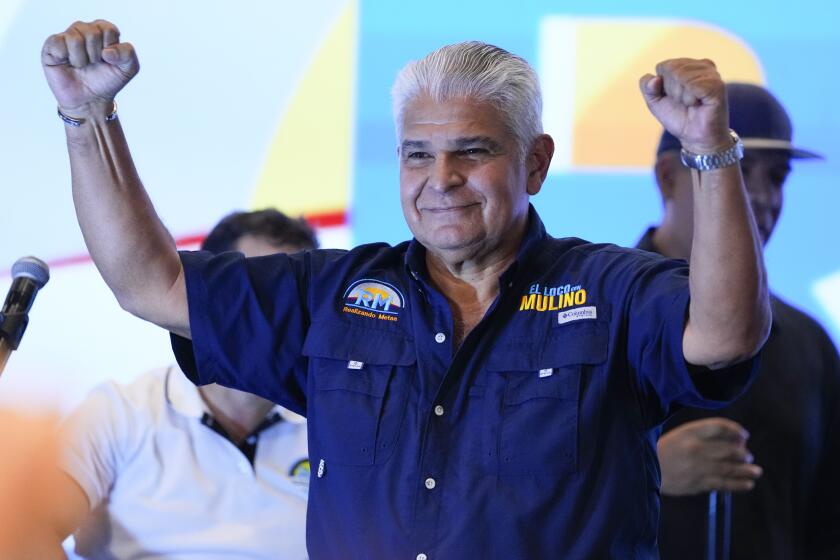NUCLEAR: Soviets Sign Inspection Agreement : Soviets Agree to Limited Nuclear Plant Inspections
In a move that could influence future arms control negotiations, the Soviet Union formally agreed Thursday to allow international on-site inspection of some domestic nuclear reactors.
The accord between the Soviet government and the Vienna-based International Atomic Energy Agency, which permits agency inspectors to personally check a limited number of civilian Soviet nuclear plants, marks only the second time that Moscow has formally agreed to independent verification.
The first such Soviet commitment, contained in a pact with the United States in the mid-1970s covering peaceful nuclear explosions, was never tested because the United States did not ratify the treaty.
Ostensibly, Thursday’s inspection agreement is only aimed at confirming that fuel from the reactors is not being redirected for military use.
But because only some of Moscow’s approximately 40 civilian nuclear plants and none of its military reactors will be subject to the accord, it is largely a symbolic gesture in non-proliferation terms. It leaves the Soviets even with the three Western nuclear power states--the United States, Britain and France--that already permit such controls.
However, some Western diplomats here believe that Soviet acceptance of the principle of on-site inspection in such a sensitive area could eventually be used as leverage with Moscow in future arms control negotiations to win commitments for closely supervised on-site checks.
Others, however, noted that the new inspection agreement, which permits the Soviets to choose which plants are checked, is a far cry from effective arms control verification. That, they said, would require Moscow to open up areas labeled as suspicious by the United States.
“You can see it as a step in the right direction,” a Western diplomat with experience in the disarmament field said. “Beyond that, it’s hard to tell.”
Key Stumbling Block
Soviet refusal to accept stringent verification has been a key stumbling block in negotiations on reductions of conventional forces in Europe. The talks have dragged on for more than a decade.
Strict provisions for verification would also constitute an important part of any nuclear disarmament agreement that might emerge from the new round of U.S.-Soviet arms control negotiations scheduled to start next month in Geneva.
At a press conference announcing Thursday’s signing of the agreement, Vladimir F. Petrovsky, head of the Soviet Foreign Ministry’s department responsible for international organizations, linked the agency’s inspection methods directly to arms control.
“We believe that the system of IAEA safeguards represents a good visible example of how international verification can take place,” he said.
Petrovsky repeatedly stressed that the timing of Thursday’s agreement would also help create “a good climate” for the start of next month’s Geneva negotiations.
Moscow first announced its intention to accept the inspection measures, known as safeguards, nearly three years ago, and it has promoted its commitment heavily for propaganda purposes ever since.
Last September, the Soviets hailed the conclusions of negotiations on the inspection agreement as a good-will gesture on the eve of Foreign Minister Andrei A. Gromyko’s visit to Washington for talks with President Reagan.
Boosting the Image
The appearance at Thursday’s press conference of three senior Soviet officials, including A.M. Petrosyants, the chairman of the Soviet State Committee on Utilization of Atomic Energy, was also seen as an attempt by Moscow to boost its global image as a champion of nuclear non-proliferation.
The move comes only a few months before the third review conference of the more than 100 nations that have signed the 1970 Nuclear Non-proliferation Treaty.
The atomic agency, an arm of the United Nations, is the treaty’s principal enforcing agency, inspecting reactors in non-nuclear states to make certain that no imported fuel is diverted to military uses.
More to Read
Start your day right
Sign up for Essential California for news, features and recommendations from the L.A. Times and beyond in your inbox six days a week.
You may occasionally receive promotional content from the Los Angeles Times.






